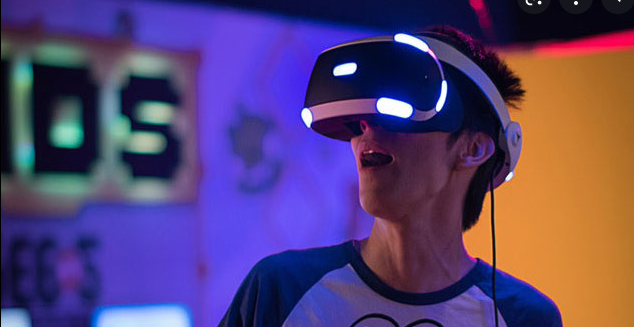August 10, 2021
2001
Today’s article will provide easy-to-understand explanations and explore how VR helps memory retention through two studies published by foreign scholars in 2018, as well as some areas where this technology seamlessly connects.
Introduction to Attention and Memory
Before we start interpreting VR and memory retention, let's briefly quickly understand how our brain understands, processes, and recalls information.
Encoding refers to the natural process by which the brain transforms information into a structure that will be stored in short-term or long-term memory. Unbounded Psychology says that it’s like "clicking "save" on a computer file. Your brain is constantly filtering, processing, and organizing information, dividing information into these categories in order to store important information, so as not to be overwhelmed by remembering every piece of information.
You may have had this experience in school, especially in the remedial exams and examination rooms, trying to read and remember what you need to know in order to pass a course. However, the key to memorizing and recalling information is to transition what you have learned from short-term memory to long-term memory. In order to do this, it is necessary to strengthen neural connections through repetition, and to strengthen our senses such as vision and sound.
Significantly improve memory
In a study conducted by researchers Eric Krokos, Catherine Plaisant, and Amitabh Varshney at the University of Maryland, their main purpose was to explore whether participants could learn better in a virtual environment compared to traditional platforms such as desktop computers or tablets. Specifically, their main concern is whether VR will affect a person's ability to recall. The researchers immersed the participants in a "memory palace" in which people recalled by placing an object or object in an imagined physical location. By presenting information in this form, researchers use spatial memory coding. In layman's terms, spatial memory coding refers to the brain's ability to organize thoughts and memories in space.
Researchers found that when participants used VR applications, their recall scores increased by at least 10%. Although this number seems small, the researchers shared that this finding is statistically significant and not due to chance. Being able to observe visually in an immersive space is the key to the improvement of this memory performance. This is because, through VR, this experience allows participants to have a real feeling when they step into a space and allows them to digitally create their own life experience. It is the behavior of using people's natural ability to perceive body position, movement and acceleration that can improve the effect of learning and recall.
Lead to better concentration
In the same study, participants described how immersion plays an important role in helping them stay focused on the task. Since the researchers used head-mounted display (HMD) headsets to compare with desktop learning, participants were able to use and experience the hardware that provided the most immersive effects. Just like HTCVive or OculusRift, the fit of HMD is similar to that of goggles. Its characteristic is that it has an edge to block light and other irrelevant stimuli that we will receive in peripheral vision.
This sets up a perfect environment for users to direct their full attention to the VR experience, which is exactly what the participants in this study discovered. It is the effect of this zoning that helped participants experience "the superiority of spatial awareness, which they claimed is important to their success." Full immersion not only helps participants’ overall concentration and helps them to complete tasks better, but the researchers also found that compared with ordinary desktops, in addition to two of the 40 participants, the other participants actually Prefer to use HMD to complete tasks
Spatial presence brings more fun
Regarding spatial awareness, research by YeonheeCho of Syracuse University specifically studied the effects of having digital presence in VR and how it affects memory retention. A striking discovery is the enjoyment of functions in memory and recall. Similar to Krokos, Plaisant, and Varshney's research, Cho is comparing the relationship between using desktop applications and immersive VR experiences to learn a second language. Cho's participants have mixed genders and backgrounds, but have one thing in common: no previous education or experience in Korean.
The results of this study partially focused on the fun of learning and emphasized how being entertained affects the entire learning process. Especially when browsing unfamiliar topics or environments, Cho pointed out that "enjoyment can reduce stress or fear", bringing new motivation and expectations to participants. And since VR is still very much associated with game-based applications and entertainment, the tendency to look at hardware in this way is actually beneficial. Cho found that game-based systems use enjoyment to build user confidence and motivation without generating negative reactions.
The scientific nature of virtual reality and memory retention
It can be said that the participants in these two studies have had a very enthusiastic response to the use of VR in the learning and application process. However, the question remains: Does VR help memory retention? In short, yes, absolutely. By targeting the way we learn and process information, grab our attention while making it fun and exciting, VR checks many boxes, which will make the experience unforgettable.
Although these findings are particularly useful for course writers and the education industry, they have far-reaching significance for adult on-the-job training, helping people learn and retain safety procedures or crisis response measures, and even VR marketing. With this tool, customers can attract attention. Strength, make your product or service stand out from the crowd. VR is a new media, and there has not been a lot of research on its social impact, but its ability to leave an impression in memory and its ability to help retain it has a major impact on various industries and verticals.
